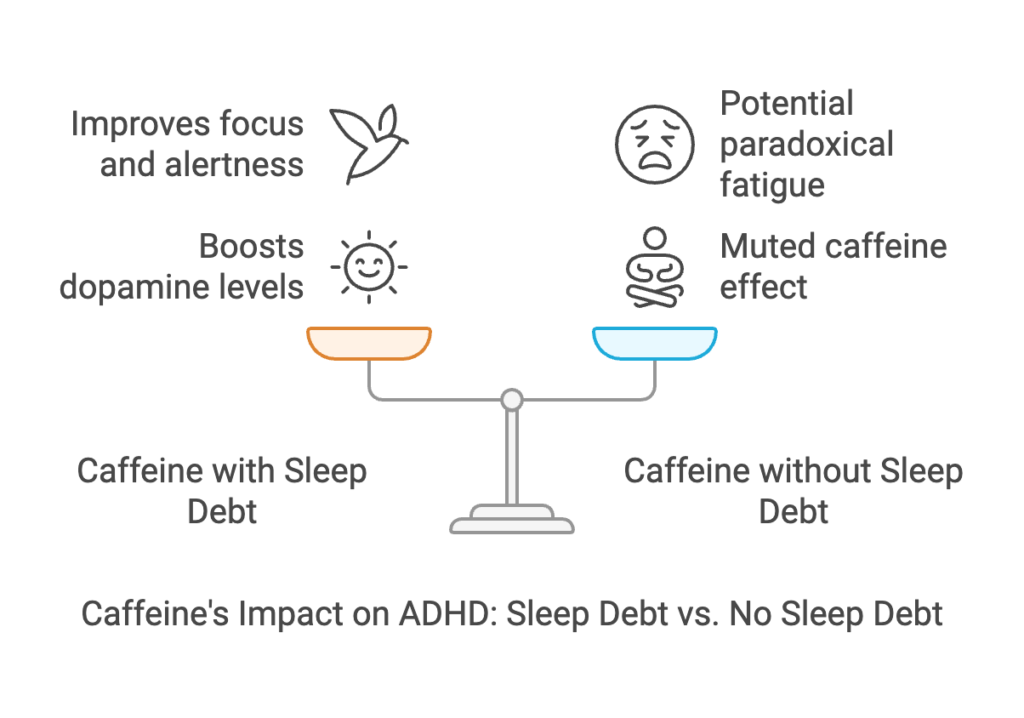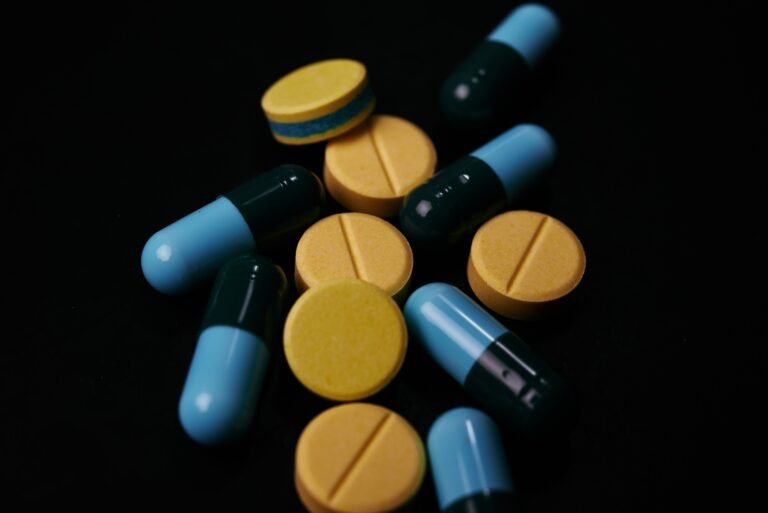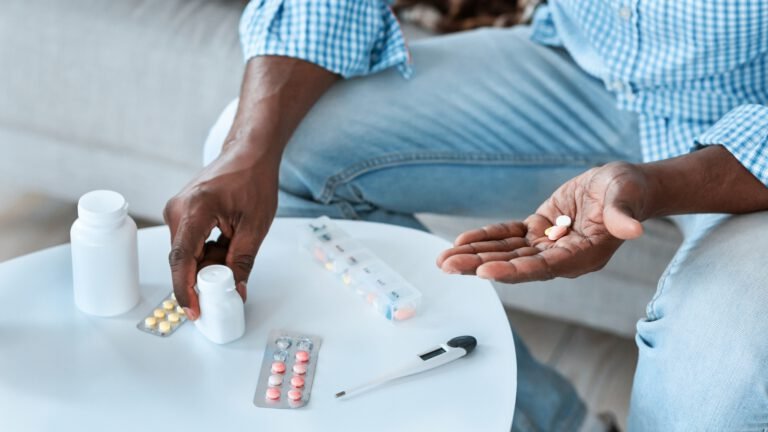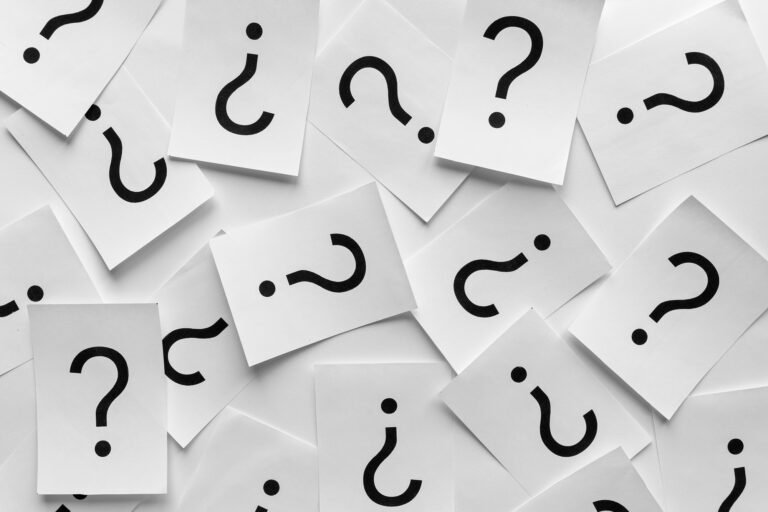The Role of Caffeine: Adenosine Blocker or Fatigue Trigger?
Caffeine’s primary job is to block adenosine, a neurotransmitter that builds up in your brain the longer you’re awake. Adenosine makes you feel tired; blocking it should theoretically stave off fatigue. For most people, this mechanism works as intended, giving them that familiar “caffeine buzz.”
But for those with ADHD, it’s not that simple. Here’s why:
- ADHD Brains and Dopamine Deficiency:
- Adenosine doesn’t just make you sleepy. It also suppresses dopamine, the neurotransmitter responsible for focus, motivation, and pleasure—things ADHD brains are notoriously low on.
- When caffeine blocks adenosine, dopamine levels can rise. This effect can temporarily improve focus and alertness for people with ADHD.
- Caffeine Without Sleep Debt:
- If you’re caught up on sleep, there’s less adenosine built up in your system. With lower adenosine levels, caffeine’s blocking effect can feel muted or even counterproductive, especially for ADHD brains.
- Instead of a dopamine boost, the absence of adenosine might make your brain struggle to regulate energy, tipping you into unexpected fatigue.
- Paradoxical Fatigue:
- With ADHD, if there’s not enough dopamine to “drop,” blocking adenosine might not provide the typical energy spike. In fact, the brain’s energy regulation can overcompensate, leaving you feeling more tired instead of less.

ADHD, Dopamine, and the Unique Coffee Effect
To truly understand why coffee might make someone with ADHD sleepy, we need to delve deeper into the dopamine connection:
- Adenosine and Dopamine Interplay:
- Adenosine dampens dopamine activity. Removing adenosine (via caffeine) often results in a relative increase in dopamine for most people.
- For ADHD brains, where dopamine levels are already low, this removal might feel insignificant or misregulated, leading to fatigue rather than stimulation.
- The “Caffeine Ceiling”:
- If you’re already low on dopamine, caffeine might only lift you so far before your brain’s natural compensatory mechanisms kick in. The result? A crash in energy or focus.
- Timing and Sensitivity:
- ADHD brains can be highly sensitive to timing. If caffeine is consumed when dopamine is naturally lower (e.g., late afternoon), the paradoxical effects might be even more pronounced.

Practical Tips: Managing Caffeine and Fatigue with ADHD
If coffee seems to make you tired instead of alert, consider these strategies:
- Monitor Your Sleep Debt:
- Caffeine works best when there’s adenosine to block. Ensuring you’re well-rested can make its effects more predictable.
- Experiment with Timing:
- Some ADHD brains respond better to caffeine earlier in the day when dopamine levels are higher.
- Avoid caffeine close to natural dips in alertness, such as mid-afternoon.
- Balance Caffeine with Nutrition:
- Pairing caffeine with a high-protein meal can stabilize dopamine and energy levels.
- Try Alternatives:
- If coffee consistently makes you sleepy, consider other stimulants or focus aids that directly address dopamine deficiencies, like ADHD medications or L-theanine supplements.
- Stay Hydrated:
- Dehydration exacerbates caffeine’s paradoxical effects. Drink water alongside your coffee.

Final Thoughts
For those of us with ADHD, caffeine is both a friend and a foe. Its effects depend on a delicate balance of neurotransmitters, sleep patterns, and individual brain chemistry. Understanding the interplay of adenosine and dopamine provides a framework to explain why coffee might make you sleepy rather than alert.
So next time you find yourself yawning after your morning brew, don’t be too hard on yourself. Instead, think about what your brain might actually need: a nap, a protein-rich snack, or even just a break. Sometimes, the best “stimulant” is simply listening to what your body is trying to tell you.
For more insights into ADHD, dopamine, and optimizing your energy, check out this guide to ADHD and focus or how to manage ADHD-related fatigue.










